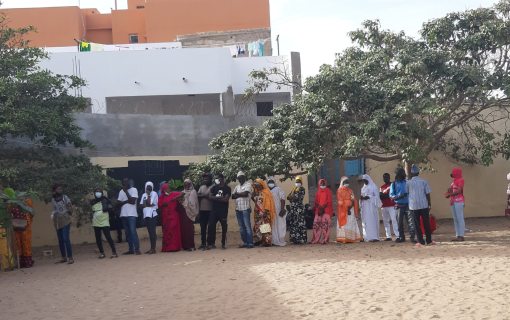
The Cycle of Corruption: Elections and the Abuse of State Resources
by Erica Shein, IFES Deputy Director, Center for Applied Research and Learning, and Electoral Integrity Adviser, and Heather Szilagyi, IFES Research Coordinator, Center for Applied Research and Learning
A widening corruption scandal in Brazil implicating former President Luiz Inácio Lula da Silva has complicated presidential elections scheduled for October 2018. A unanimous ruling in a Brazilian appeals court makes the former president ineligible to run for office, though he is expected to fight the decision and still commands a lead in the polls. This ruling is just one piece of an unfolding investigation into the infamous “Operation Car Wash” scandal that has unearthed billions of dollar in payoffs and revealed that some election campaigns were financed through corrupt dealings.
In many ways, elections are a central component in cycles of systemic corruption. Once they win elections, politicians and powerful political parties often have access to state resources and can take advantage of a politicized civil service, public contractors, government communications and state media, and other means of in-kind support to both enrich themselves and gain an unfair electoral advantage. Following an election, politicians can “pay back” the services rendered during the campaign in the form of civil service employment and benefits, favorable procurement contracts, and other perks for supporters. In many countries, the abuse of state resources (ASR) is not sufficiently regulated, or there are disparities between what is written in the law and what happens in practice. These gaps leave the electoral system vulnerable to manipulation by those in positions of power.
Recognizing that ASR can introduce or exacerbate power inequalities, compromise the integrity of an election, and reduce public trust in the legitimacy of the process and its outcomes, the International Foundation for Electoral Systems (IFES) conducted a two-year research project to develop an assessment methodology to evaluate the effectiveness of a given country’s framework for addressing ASR in election campaigns. This technical leadership project was supported by U.S. Agency for International Development under the Global Elections and Political Transitions (GEPT) mechanism. Research on the United States (discussed below) was funded by IFES.
IFES conducted desk research on the ASR legal frameworks of Brazil, Georgia, Morocco, Mozambique, Sri Lanka, and all 50 states in the United States, as well as supplemental field research in Sri Lanka, to determine common barriers to reform and avenues for abuse. Unlike many other aspects of an electoral legal framework, provisions governing ASR are dispersed across various laws and administrative areas, and comparative experience suggests the issue is not addressed comprehensively and cohesively during election campaigns. IFES presented initial research findings in the white paper “Unfair Advantage: The Abuse of State Resources in Elections” at the 2016 International Political Science Association World Congress in Poznań, Poland.
The final product of this project is a detailed assessment methodology that specifically examines three categories of state resources: state personnel (including requirements to act impartially, eligibility to run for public office, and participation in election campaigns); state funds and physical resources (including state budgets, government buildings, equipment, and vehicles); and official government communications to the public (including print communication, official social media accounts, and public or state-owned media).
An evaluation of the ASR legal framework (with respect to these three categories) is predicated on several important principles recognized in international law and comparative good practice. First, the legal framework must establish effective mechanisms to prevent public officials from taking unfair advantage of their positions in order to influence the outcome of elections. Second, effective and transparent oversight by independent institutions is essential to address ASR. Finally, the framework should properly enforce sanctions and penalties for state officials who violate the law, regulations, and rules established by their institutions.
The methodology also considers five specific contextual areas of interest that influence the abuse of state resources but are outside the bounds of the principles assessed in the ASR legal framework category: the public service framework; campaign finance framework; civil society oversight and advocacy; media environment and public information; and public procurement. These areas are evaluated with the recognition that an analysis of the legal framework would be incomplete without taking stock of contextual factors. More crucially, any recommendations resulting from the assessment would likely fail to capture important nuance, and could be impractical to implement.
IFES pilot tested the methodology in Georgia in May 2017 and conducted an assessment in Bosnia and Herzegovina under the GEPT project “Catalyzing Cross-Party Initiatives” the following November.











